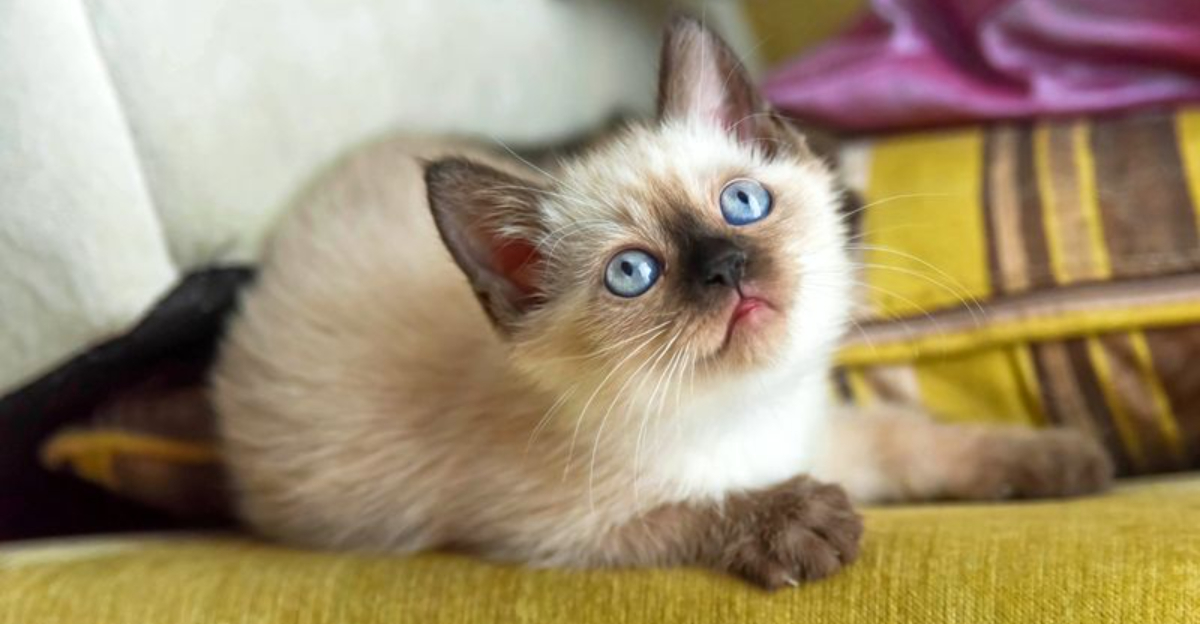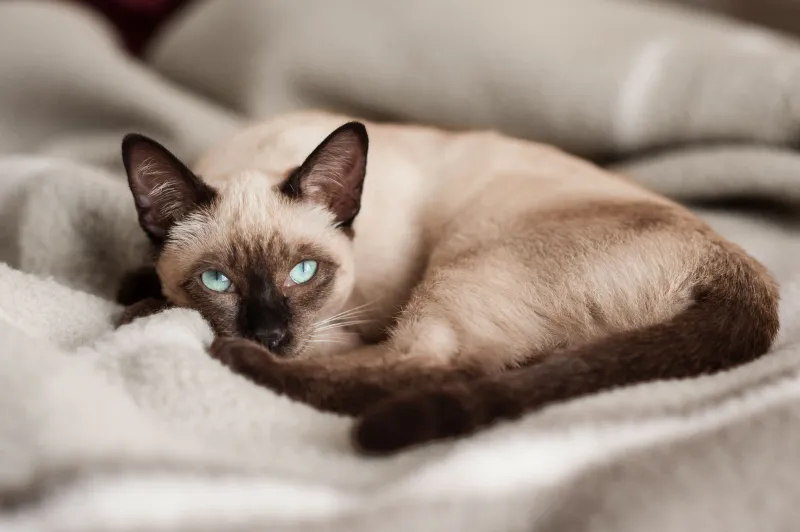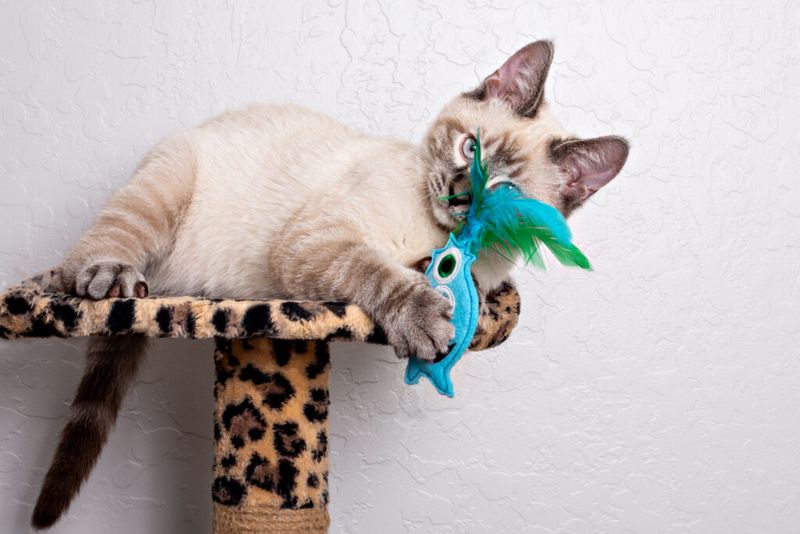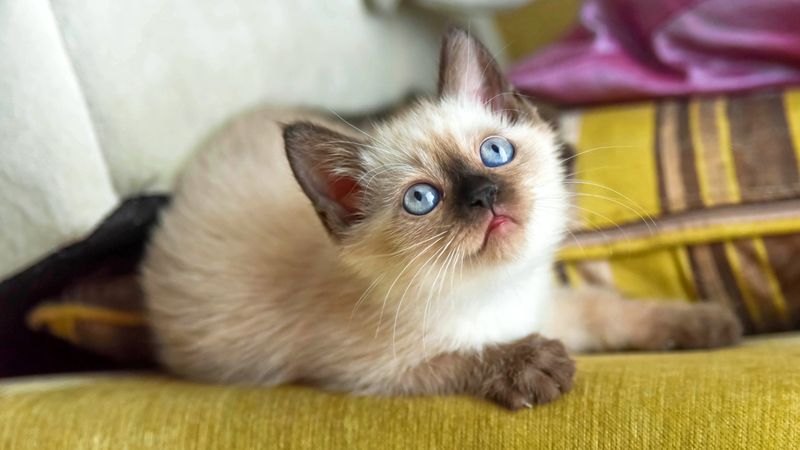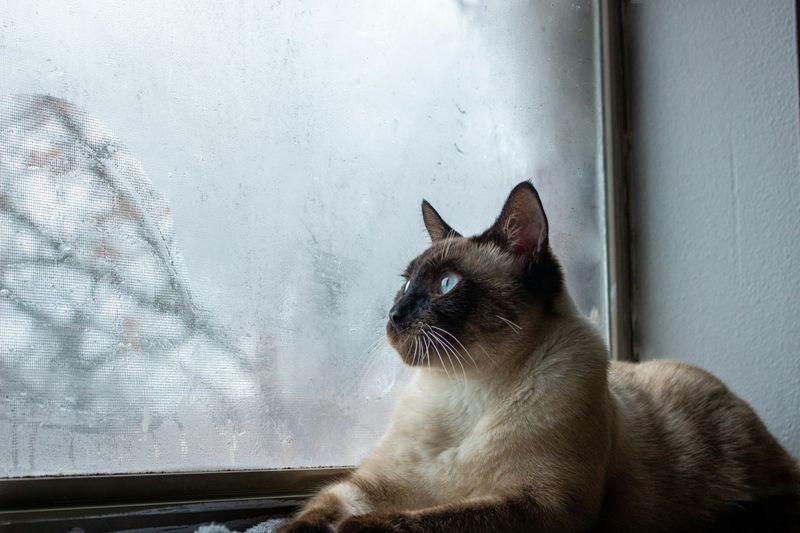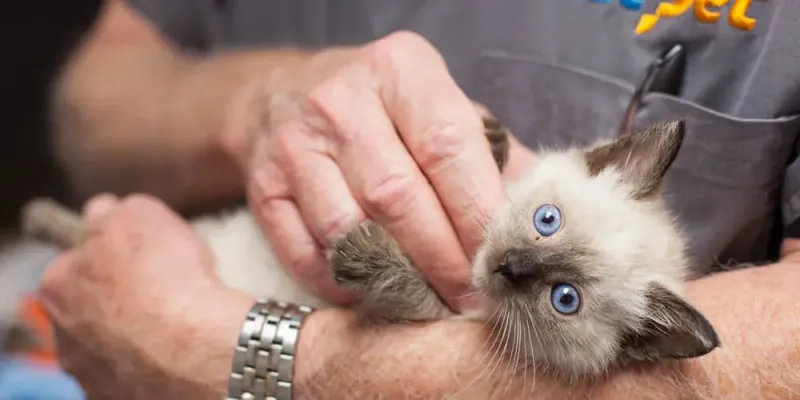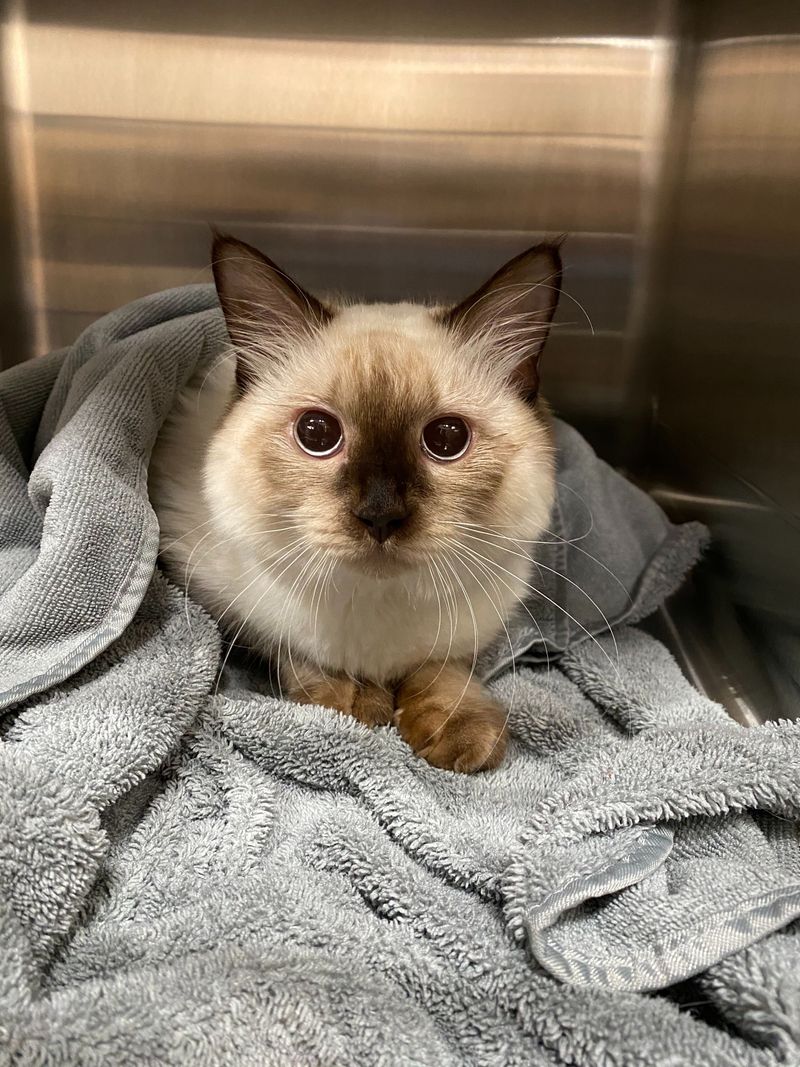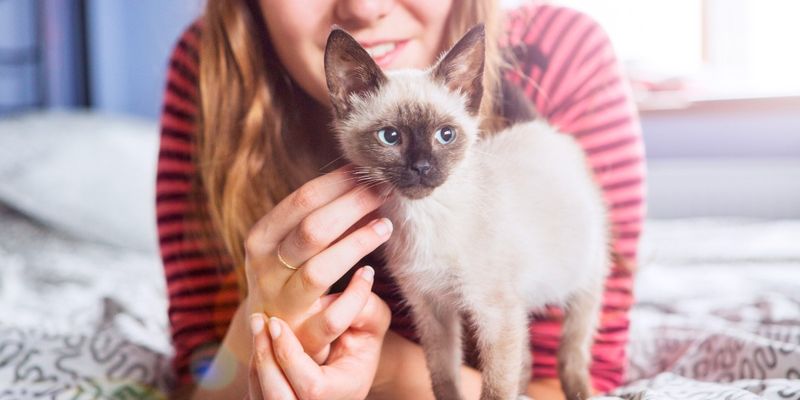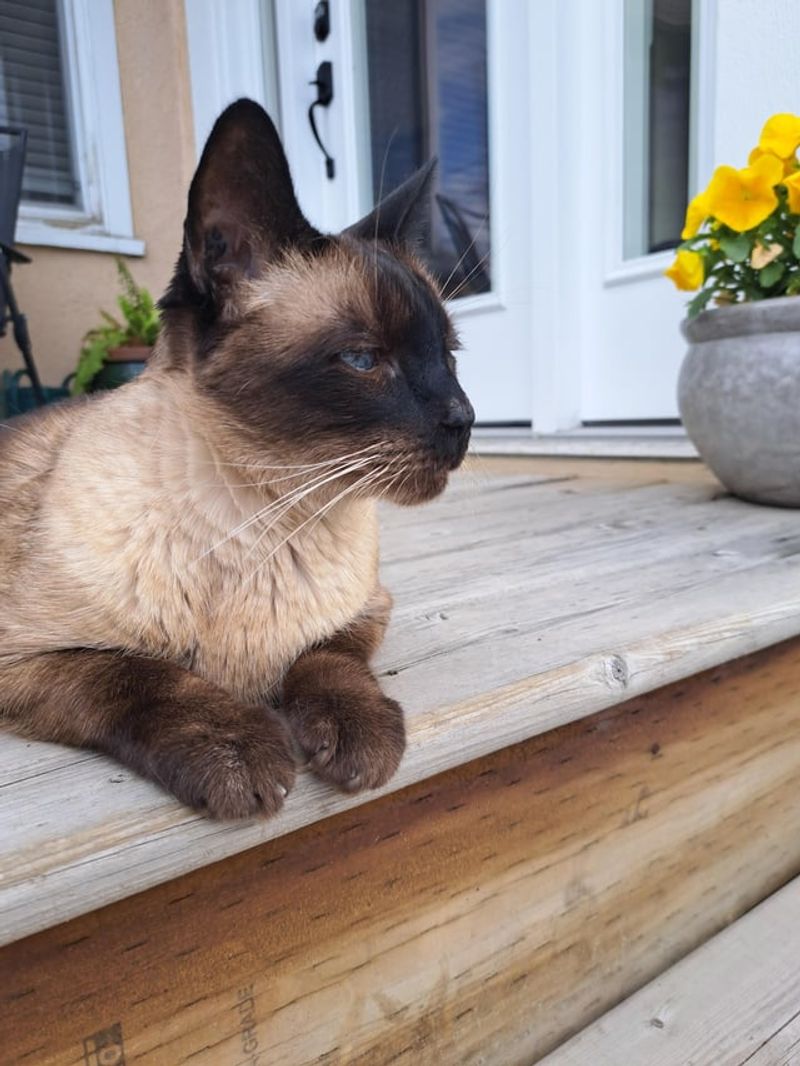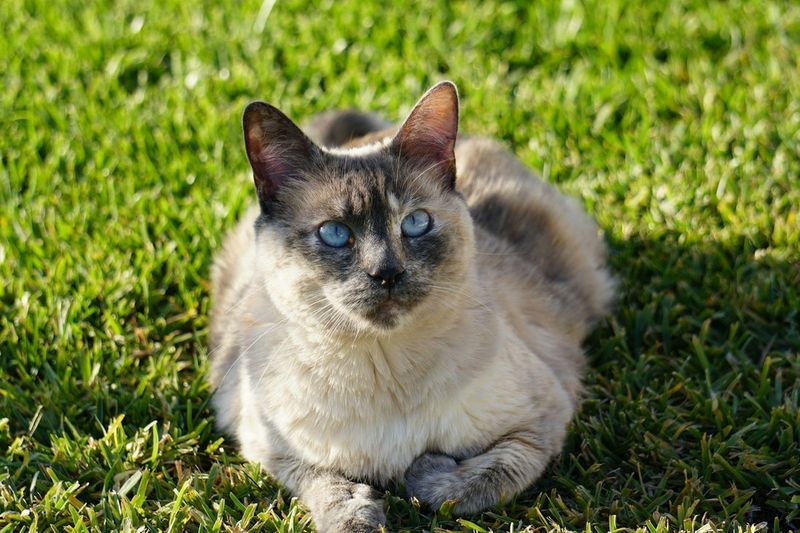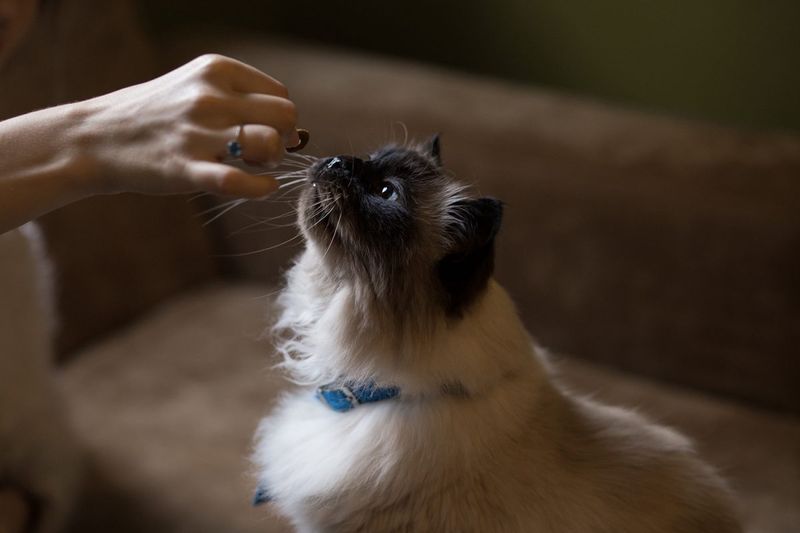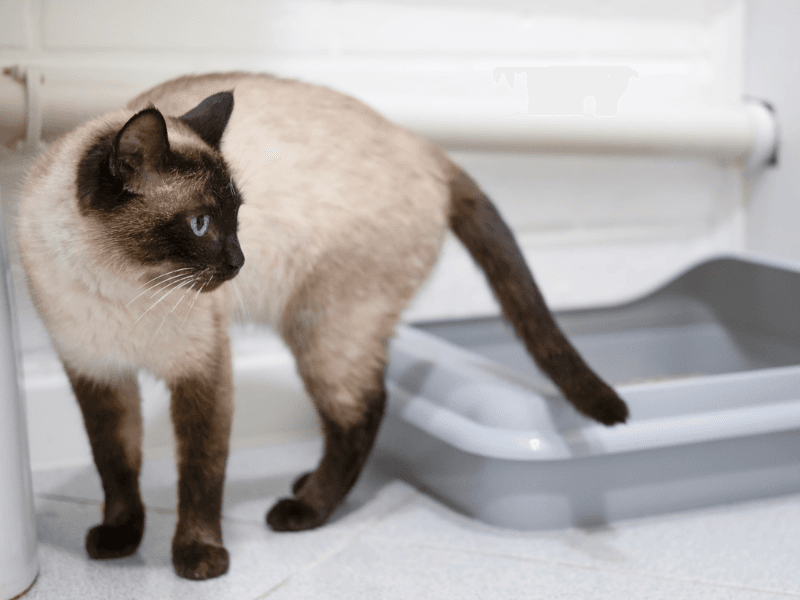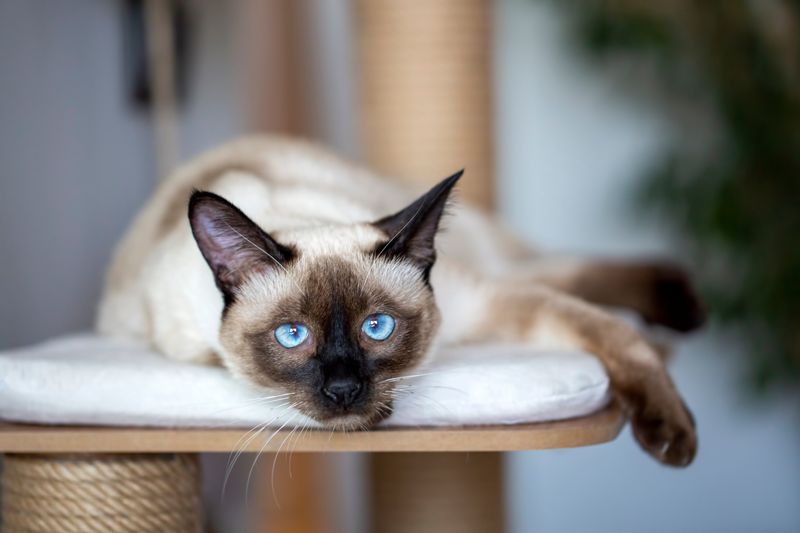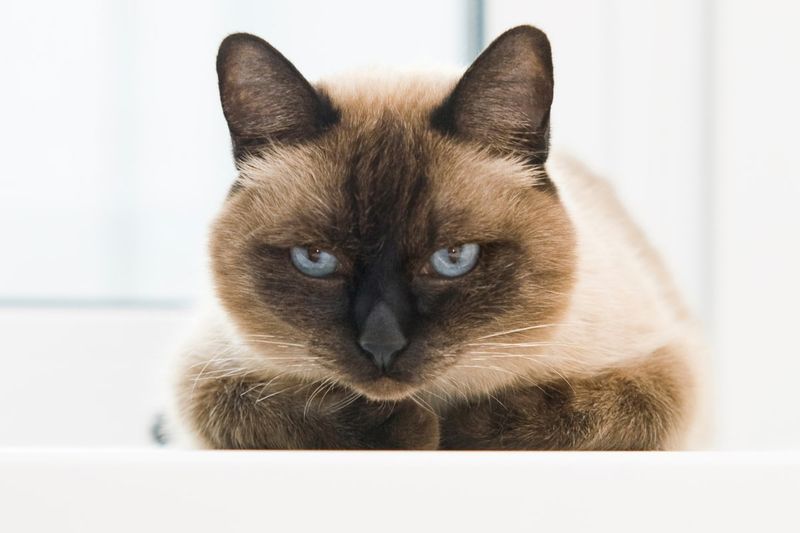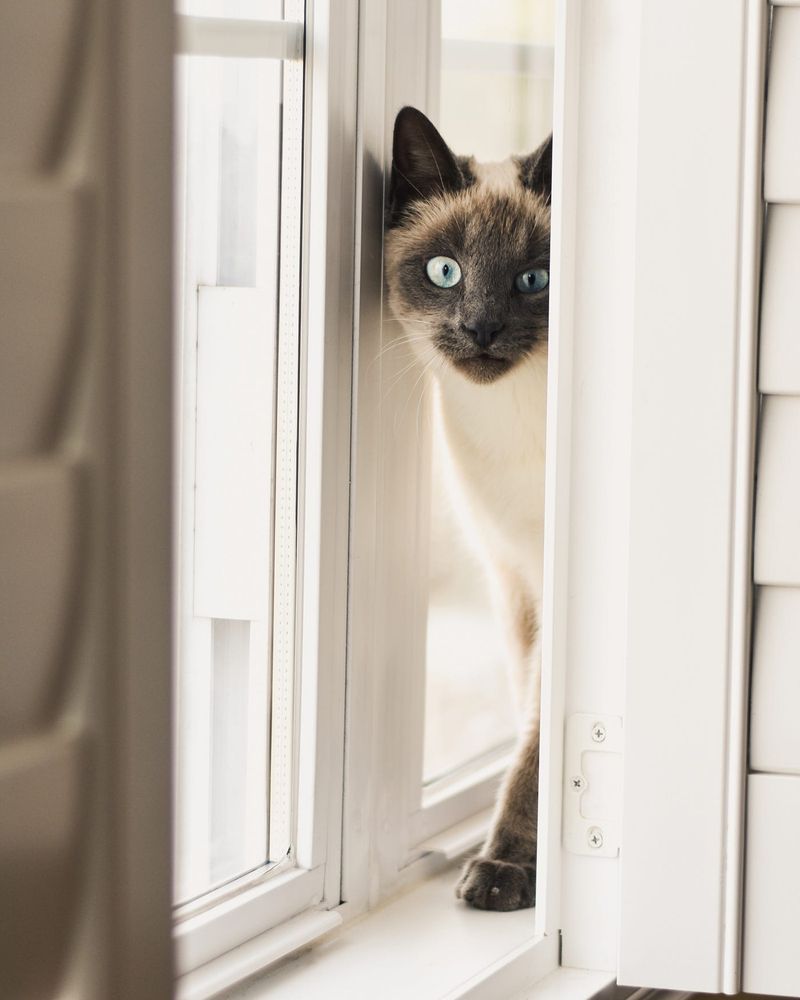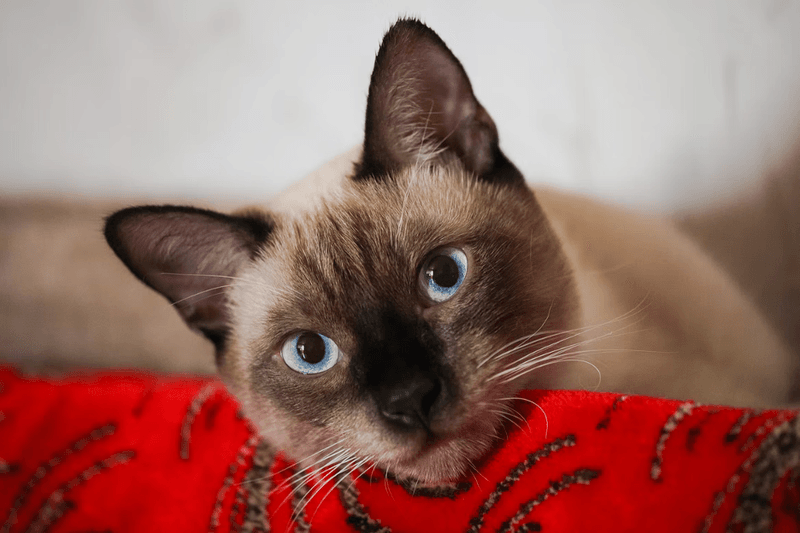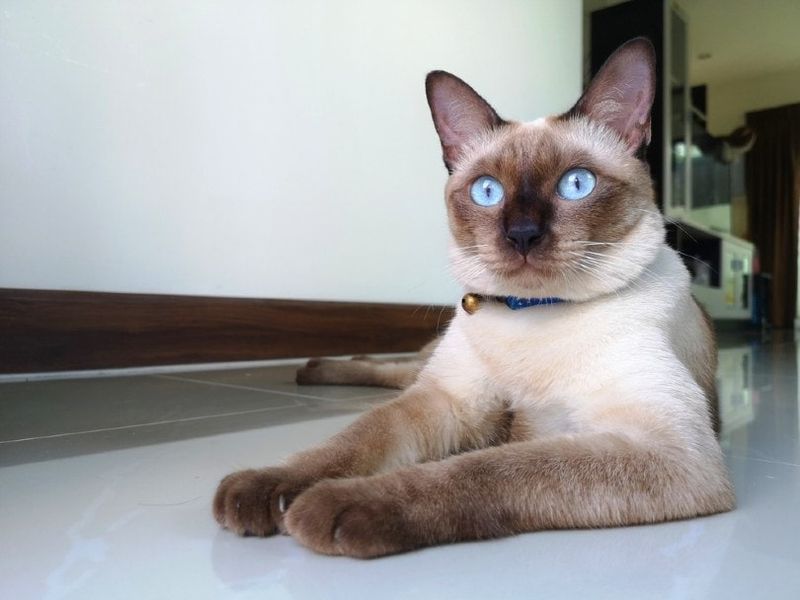📖 Table of Content:
- 1. You Have Plenty of Time for Interaction
- 2. Your Home Is Mentally Stimulating
- 3. You’re Ready for a Vocal Companion
- 4. You Can Commit for 15+ Years
- 5. Your Budget Includes Quality Care
- 6. Your Home Is Temperature-Controlled
- 7. You Appreciate Intelligence and Independence
- 8. You’re Prepared for Grooming Needs
- 9. Your Home Is Free of Escape Routes
- 10. You’re Ready for an Active Lifestyle
- 11. You Can Provide Consistent Routines
- 12. You’re Patient with Training Needs
- 1. Your Schedule Is Unpredictable
- 2. You Prefer a Quiet, Low-Maintenance Pet
- 3. Your Living Space Has Thin Walls
- 4. You Have Limited Space for Activities
- 5. You’re Allergic to Cat Dander
Siamese cats are known for their piercing blue eyes, elegant appearance, and highly social nature. These distinctive felines often form strong bonds with their humans and thrive on daily interaction. Their intelligence and curiosity set them apart from many other breeds.
Living with a Siamese cat means adapting to their vocal tendencies and active personality. They demand attention, mental stimulation, and companionship throughout the day. Without proper engagement, they can become restless or even develop behavioral issues.
Choosing to bring a Siamese into the home requires more than admiration for their beauty. It calls for an honest look at one’s ability to meet their emotional and physical needs. Understanding the realities of the breed is the first step toward a successful and fulfilling relationship.
1. You Have Plenty of Time for Interaction
Siamese cats thrive on human connection and become genuinely unhappy when left alone for long periods. They’ll follow you from room to room, participate in your activities, and even engage in conversations with their distinctive meows. Unlike more independent breeds, Siamese need daily play sessions and quality time with their humans.
They form deep bonds with their owners and can experience separation anxiety without adequate attention. If your schedule allows for consistent interaction and you enjoy a chatty companion who wants to be involved in everything you do, you’re meeting a fundamental Siamese need.
2. Your Home Is Mentally Stimulating
Smart as whips, Siamese cats need an environment that challenges their intelligence. These clever felines quickly grow bored with the same old toys and routines, leading to potential mischief when understimulated. Puzzle feeders, rotating toy collections, and interactive play sessions keep their active minds engaged.
Many Siamese owners create cat-friendly spaces with climbing opportunities, hiding spots, and window perches for bird-watching. Having a home already set up with these enrichment options signals you understand the mental workout these cats require to stay happy and well-adjusted.
3. You’re Ready for a Vocal Companion
To live with a Siamese is to never feel alone in a room. They’ll greet you with a chirp, follow you with questions, and respond with a yowl if dinner is late. These cats believe conversation is a two-way street — and they always have the last word.
They’ll respond when spoken to and initiate discussions throughout the day, especially when they want something. If neighbors living in close proximity won’t mind the noise and you find feline commentary charming rather than annoying, you’ve cleared a major hurdle in Siamese compatibility.
4. You Can Commit for 15+ Years
Bringing a Siamese into your life means planning for a long-term relationship. These cats regularly live 15-20 years, with many reaching their early twenties with proper care. Their longevity requires consistent veterinary care, quality nutrition, and lifestyle adjustments as they age. Siamese form particularly strong bonds with their humans and don’t adapt easily to rehoming.
When you’re ready for a decade-plus commitment through various life changes like moves, relationship shifts, or career developments, you’re demonstrating the stability these cats need. Their loyalty deserves a forever home.
5. Your Budget Includes Quality Care
Financial preparedness for a Siamese goes beyond the initial adoption fee. These cats benefit from premium nutrition that supports their active metabolism and helps prevent health issues common to the breed. Regular veterinary check-ups, dental care, and potential breed-specific health concerns like respiratory issues or progressive retinal atrophy require budgeting.
Many Siamese owners also invest in pet insurance to manage unexpected medical expenses. When your financial planning already includes these ongoing costs without strain, you’re showing responsible foresight for your potential feline family member’s well-being.
6. Your Home Is Temperature-Controlled
Siamese cats have a special coat characteristic that makes them sensitive to temperature fluctuations. Their color-point pattern results from a temperature-sensitive enzyme that darkens their extremities – and this same mechanism makes them heat-seekers by nature.
These cats thrive in consistently warm environments and will actively seek heat sources like sunny windows, heating vents, or your lap. Cold drafts or chilly homes can make them uncomfortable and stressed. Having a well-insulated, temperature-controlled living space demonstrates you can provide the comfortable environment these heat-loving felines need year-round.
7. You Appreciate Intelligence and Independence
With minds as sharp as their voices, Siamese cats excel at puzzles, tricks, and even opening cabinets. Their independent nature means they’re always chasing a new challenge, whether or not it’s part of your plan. It’s no surprise they often have their humans wrapped around their paws.
They quickly figure out which behaviors get attention and aren’t afraid to repeat them until they get what they want. If you find feline problem-solving entertaining rather than frustrating and don’t mind a cat with definite opinions, you’re well-matched to the Siamese personality.
8. You’re Prepared for Grooming Needs
Short-haired coats make Siamese relatively low-maintenance in the grooming department, but they still benefit from regular attention. Weekly brushing helps control shedding and distributes natural oils for a healthy, glossy coat.
Beyond brushing, Siamese need routine nail trims, ear cleaning, and dental care to stay in top condition. Many develop a special appreciation for grooming sessions when introduced properly. Having grooming tools ready and the knowledge to use them properly indicates you’re prepared for this aspect of Siamese care. Their striking appearance stays most beautiful with regular maintenance.
9. Your Home Is Free of Escape Routes
Curious minds and nimble bodies make Siamese cats natural escape artists. They’ve been known to open doors, climb high shelves, and vanish through the tiniest gaps. Keeping one inside can feel like outsmarting a feline Houdini.
Secure screens, careful door management, and awareness of potential exit points are essential for keeping these adventurous cats safe. Many Siamese owners microchip their cats as an additional precaution. When your home is already secured against feline escape attempts, you’re showing awareness of this breed’s exploring tendencies and commitment to their safety.
10. You’re Ready for an Active Lifestyle
Athletic and energetic, Siamese cats maintain kitten-like playfulness well into adulthood. Their sleek bodies are built for movement, and they excel at jumping, running, and climbing. Daily play sessions that mimic hunting behaviors help channel their energy in positive ways. Many Siamese enjoy interactive toys, fetch games, and even walking on leashes with proper training.
When your lifestyle already includes time for active play and you have space for feline acrobatics, you’re prepared for the Siamese energy level. Their playful antics keep both of you entertained and physically healthy.
11. You Can Provide Consistent Routines
Creatures of habit, Siamese cats thrive on predictable daily schedules. They quickly learn when mealtime, play sessions, and bedtime should occur – and won’t hesitate to remind you if you’re running late! Changes to established routines can cause stress for these structure-loving felines. Many Siamese owners notice their cats anticipating regular events and becoming anxious when expectations aren’t met.
Having a relatively stable lifestyle with consistent daily patterns shows you can provide the predictability these cats crave. Their sense of security depends partly on knowing what comes next.
12. You’re Patient with Training Needs
Siamese intelligence makes them highly trainable – but also means they need proper guidance to develop good habits. These cats quickly learn behaviors that get attention, whether positive or negative. Consistent, positive reinforcement helps channel their smarts in constructive directions. Many Siamese can learn tricks, use puzzle feeders, and even walk on leashes with patient training.
If you enjoy working with a pet’s natural abilities and have the patience for teaching boundaries, you’ll appreciate the Siamese learning capacity. Their trainability is among the highest in the cat world.
1. Your Schedule Is Unpredictable
Frequent business trips, long work hours, or unpredictable schedules create challenges for Siamese ownership. These attachment-oriented cats become genuinely distressed when left alone for extended periods or when facing constant disruptions to their routines.
Unlike more independent breeds, Siamese don’t simply sleep while waiting for your return. They actively seek interaction and can develop problematic behaviors when their social needs go unmet. If your lifestyle currently involves irregular hours or frequent absences without reliable cat care, it might be wise to wait until your schedule stabilizes before bringing home this people-focused breed.
2. You Prefer a Quiet, Low-Maintenance Pet
Siamese cats bring many wonderful qualities to the table, but quietness isn’t one of them! Their legendary vocalizations range from sweet chirps to loud, persistent demands that can’t be ignored. These cats also require significant mental and physical stimulation compared to less active breeds. Their intelligence means they need engagement and enrichment to prevent boredom-related behavior problems.
If you’re seeking a pet that remains quietly in the background with minimal interaction, a Siamese will likely overwhelm you. Their presence is felt throughout the home, making them ill-suited for those wanting a more independent, hands-off companion.
3. Your Living Space Has Thin Walls
Apartment dwellers with close neighbors should carefully consider the Siamese vocal tendencies. These cats are famous for their loud, persistent meowing that can penetrate walls and disturb those living nearby. Early morning vocalizations are particularly common as Siamese often decide sunrise means breakfast time – regardless of your sleeping preferences.
Their distinctive yowls carry surprising distances and volume. If noise complaints could create housing issues or you’re concerned about disturbing others, this might not be the right time for a Siamese. Their communication style works better in detached homes or well-soundproofed living situations.
4. You Have Limited Space for Activities
Confined living quarters present challenges for the active Siamese. These energetic cats need room for zoomies, jumping, and climbing to express their natural behaviors and burn off energy. Without adequate space and enrichment, Siamese may develop destructive habits or excessive vocalization from frustration.
Their athletic builds are designed for movement, making very small apartments potentially restrictive. If your current living situation doesn’t offer enough room for active play and climbing opportunities, consider waiting until you can provide more space. Their physical needs require thinking vertically as well as horizontally about your living environment.
5. You’re Allergic to Cat Dander
Despite myths about hypoallergenic cats, Siamese still produce the proteins that trigger allergic reactions. While they shed less than some breeds, they’re not truly allergy-free and can cause symptoms in sensitive individuals. Living with allergies and a Siamese requires committed management through regular cleaning, possible medication, and potential lifestyle adjustments.
Many prospective owners underestimate the long-term impact of daily allergy symptoms. If you or household members have known cat allergies, spend extended time with Siamese cats before committing. The decades-long relationship shouldn’t begin with health concerns that might eventually lead to rehoming.
